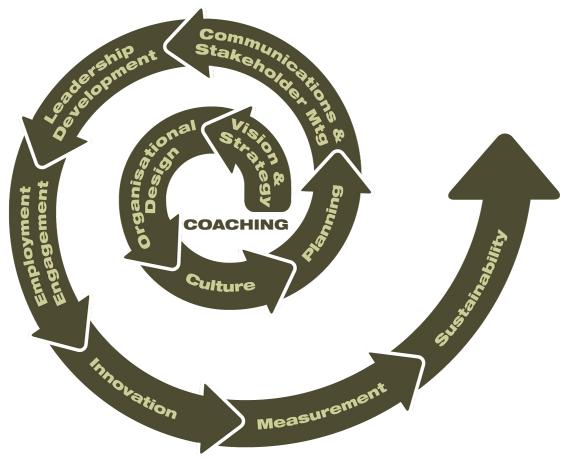
CoachingServices
Is Coaching for you?
Coaching is a process of helping an individual towards increased effectiveness and well being. Coaching is present in many areas of life including sports, business or executive coaching and life coaching.
Are you a Manager, Director or leader in another capacity?
Working with a Coach can give you the really powerful lift that you need to get the results that you want.
A Coach works with anyone who is looking to improve their personal effectiveness or performance in a role. Leaders work in all professional areas and share a drive to influence others and to move forward in their own careers and lives. A Coach will help you improve your personal effectiveness or performance in a role.
Do you need to move forward?
Your Coach will act as your dedicated and confidential thinking partner. You’ll gain perspective on where you are and on the issues you face today – so you can develop clear goals to take you where you want to go. With your coach’s support, you’ll discover new insights and learn more about yourself as you work towards your goals. You’ll move forward faster and further than you could do on your own.
Coaching is right for you if:
- You need to make a shift in your thinking or behaviour
- You have a goal to meet
- You need someone to listen and give you a neutral perspective
- You rarely have time for your own professional development
- You face critical deadlines and multiple priorities
- You need your team or colleagues on-side to get things done
- You are inundated with requests for your time and attention
- You are driven
- You are under pressure to perform
Our coaching packages
We offer three types of coaching packages to individuals and organsiations:
-
A series of 12 weekly coaching sessions, set around a series of 3 goals
-
Monthly coaching sessions, designed to keep an executive on track once initial goals have been achieved
-
The “power hour”, an hour of highly -focussed coaching to achieve breakthrough around a difficult issue
Coaching Return on Investment (ROI)
Most people who use a coach report feelings of renewed focus, enhanced work performance, a sense of achievement and improved confidence. These may be more than enough of a return on investment for the individual who is investing in the coaching themselves, but what if their employer is funding the coaching? They will want harder measures to demonstrate value for money … but how realistic is this?
Measuring Benefits
The key is to determining the success of a coaching programme is to agree the aims and measures upfront. Improving staff retention is a popular choice as it can establish a clear financial saving, however, this can take many months or years, before a clear trend appears. This is also the same for other financial measures: including increased sales, reduced costs, repeat business, employee productivity.
Some useful measurement techniques include:
- Attitude surveys completed before, during and after the programme by coach, coachee, direct reports, manager and, if appropriate, a supplier or customer. This ‘Likert’ technique presents a set of attitude statements which are scored on a scale of 1 to 5.
- Interviews with peers and direct reports before and after coaching to establish a picture of the changes created by coaching.
- Ad hoc data information can be gathered to build a picture of the impact of coaching: testimonials, case studies, comparison of appraisal reports, reviews, likeability ratings and getting the coachee to list the changes that have occurred.
ROI Realities
Hard measures of the financial ROI of coaching vary dramatically. A few quotes illustrate the divergence of opinion:
“Coaching produced a 529% return on investment and significant intangible benefits to the business”. Metrix Global survey
“The actual investment in coaching was way below the training expense, yet the benefit was enormous (not just in financial terms). The payback was 2,000 to 3,000%”. Geoff Hinsley Study
“80% of managers believe they would benefit from coaching / more coaching in their place of work …93% per cent of managers believe that coaching should be available to all employees, regardless of seniority”. Coaching at Work survey 2002 conducted by Chartered Management Institute
Qualitative versus Quantitative
“Only 30% of coaching interventions use quantitative measures….while the remaining 70% use qualitative measures, which to be of real value, must be planned in at the beginning of the coaching prorgamme” Harvard Business Review Report, The Realities of Executive Coaching, Jan 09
Contact us today to see how we can help you
Call us on +44 (0)7715 165858 or email deborah.jones@jonesconsulting.org.uk
